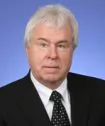CHAUDHURI APPOINTED TO NATIONAL INDIAN GAMING COMMISSION
by Patrick Sullivan
On September 4, 2013, Jonodev Osceola Chaudhuri, an enrolled member of the Muscogee Creek Nation, was appointed to a three-year term as Associate Commissioner, and on October 28, he was designated Acting Chairman of the National Indian Gaming Commission ("NIGC"), the federal agency responsible for the regulation of Indian gaming. Chaudhuri was appointed by Secretary of the Interior Sally Jewell.
Chaudhuri joins Associate Commissioner Daniel J. Little on the Commission, who was sworn in for a second three-year term. Indian Country Today magazine characterized Chaudhuri as a strong advocate of tribal sovereignty and quoted him as being excited about the post and Indian gaming, which he believes "dramatically impacts and improves people's lives." Chaudhuri stated he would continue former Chairwoman Tracie Stevens' prioritization of collaboration and assistance to gaming tribes in order to minimize the necessity of punitive enforcement actions.
The Indian Gaming Regulatory Act ("IGRA") provides for a three-person NIGC. The Chairperson is generally appointed by the President and confirmed by the Senate, and two Associate Commissioners are appointed by the Secretary of the Interior. IGRA requires that at least two members of the Commission must be enrolled Indian tribe members, and no more than two members of the Commission may be of the same political party.
Due to the unique structure of the NIGC, as Acting Chairman, Chaudhuri alone is the decision maker in most Commission regulatory and enforcement actions. IGRA specifies that the powers of the Chairman include the issuance of temporary closure orders, levying of civil fines, approval of tribal gaming ordinances and management contracts, and any other powers delegated by the Commission. In general, the full Commission only acts to confirm or reverse the Chairman's actions on appeal.
Chaudhuri will be advised by NIGC Acting General Counsel Eric Shepard, who joined NIGC in April 2012 after serving as Attorney General at Colorado River Indian Tribes for ten years. Shepard leads a team of attorneys comprising the NIGC Office of the General Counsel who advise the Commissioners. The NIGC also maintains a field staff of compliance officers, auditors, and administrative staff in regional offices in Portland (Oregon), Sacramento, Phoenix, St. Paul, Tulsa, Oklahoma City, and Washington, D.C.
Prior to his appointment, Chaudhuri had served as Senior Counselor to the Department of the Interior's Assistant Secretary for Indian Affairs, Kevin Washburn. Before his government service, Chaudhuri worked in private practice and served as a judge on several tribal courts, including service as Chief Justice of the Muscogee Creek Nation Supreme Court.
The NIGC's latest reports show that in 2012, Indian gaming brought in $27.9 billion in revenues from 420 gaming facilities operated by 240 tribes in 28 states.
AQUINNAH'S LONG AND WINDING ROAD TO GAMING MAY HAVE HIT THE ULTIMATE ROADBLOCK
by Dennis J. Whittlesey
Just when the Wampanoag Tribe of Gay Head (Aquinnah) appeared to have finally overcome decades of legal and political problems in its quest to develop gaming, a new problem has arisen, and this one may well insure that there never will be an Aquinnah casino either on the mainland or the tribal lands within the Town of Aquinnah on Martha's Vineyard. Tribal interest in a mainland project was universally opposed throughout Southeast Massachusetts, and any such plans previously appeared to have been dropped in favor of pursuing gaming on the Vineyard land.
The latest – and perhaps fatal – blow does not come from competitors or even the non-Indian population of the Vineyard that has voiced concerns about a project on the Tribe's trust lands in the town. Rather, it is purely an intra-tribal development earlier this week that likely will lead to an indefinite hold on all casino discussion.
The new problem is the product of a tribal election conducted last Sunday resulting in the pro-casino Chairman being defeated for reelection. The new Chairman is far from enthusiastic about development of a gaming facility, and there now are questions as to whether the entire casino proposal will merely be deferred or cancelled outright. In any event, the vote followed pronouncements of opposition at both the local and state level, the latter of which comes directly from the office of Governor Deval Patrick, who has stated that the Tribe forfeited all tribal gaming rights over 20 years ago. The Governor's conclusion is shared by the Aquinnah Board of Selectmen and Town Counsel.
The effort to establish an economic engine for the Gay Head Tribe is decades old and began some 15 years before the federal government's formal federal recognition of the Tribe, when tribal members formed the Wampanoag Tribal Council of Gay Head, Inc. for the purposes of "cultural preservation and political self-determination." Recognition in April 1987 was part of a comprehensive resolution of tribal land aboriginal claims and attempts to secure federal recognition that was memorialized in the Joint Memorandum of Understanding executed on November 22, 1983, for the purpose of settling tribal land claims. Signatories were the Tribe, the Town, and the Commonwealth of Massachusetts.
The Joint Memorandum settlement was implemented in major part by Congressional enactment of The Massachusetts Indian Land Claim Settlement Act of August 18, 1987. The current debate about Gay Head gaming entitlement will turn on the provisions of the federal Settlement Act read in context with the federal Indian Gaming Regulatory Act of 1988 ("IGRA"), and legal counsel for the Town and the Commonwealth contend that IGRA cannot legalize tribal gaming. In the words of the Governor's legal counsel, Kate Cook, the 1977 Settlement Act, and the related settlement agreement, "acknowledges, preserves and protects the Commonwealth's authority to regulate gaming both on the Aquinnah's land in Gay Head and on any [other tribal] ... land within Massachusetts."
In contrast, the federal government has sided with the Tribe and reached an entirely different legal conclusion. Indeed, the debate was energized on August 29 with federal approval of a site-specific tribal gaming ordinance approving gaming on tribal lands within the town. In addition, the federal support for the project was reinforced on October 25 when the National Indian Gaming Commission's Acting General Counsel Eric Shepard propounded an opinion unequivocally declaring that the Tribe has a right under IGRA to conduct the gaming on the Gay Head lands. That opinion cited other federal legal determinations, including the conclusion that IGRA "implicitly" repealed any provisions of the federal Settlement Act that are "repugnant to IGRA."
With this, the battle lines were clearly drawn with both the Commonwealth and Town Board of Selectmen openly threatening litigation to stop any tribal gaming operations. The confrontation seemed inevitable until last Sunday's tribal election in which Tribal Chair Cheryl Andrews-Maltais was defeated for reelection by Tobias Vanderhoop whose rhetoric on gaming was decidedly more low-key than that of his predecessor who aggressively pursued tribal casino development. During the closing days of the election campaign, Vanderhoop stated in an interview that he favors a "gaming initiative" for tribal members only after they have defined "what is appropriate" and following a public in-depth discussion within the tribal community. This low-key rhetoric seems to signal a "go slow" approach.
In any event, the new Chairman clearly has backed away from the full-court press favored by his predecessor. Whether the delay in casino planning is merely temporary remains to be seen. However, the fact is that Aquinnah is facing certain legal challenges to any gaming development within the state, a factor that surely will hamper tribal efforts to contract with developers and secure financing for a casino project. In light of the unresolved difficulties faced by the Tribe, this retreat could become permanent.
The content of this article is intended to provide a general guide to the subject matter. Specialist advice should be sought about your specific circumstances.

